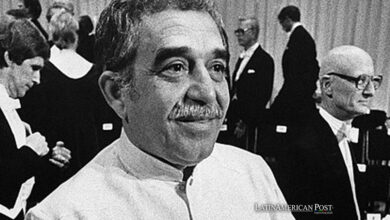Cuba and the United States: the return to isolationism
The position of President Trump’s government towards the island nation seems to be more than clear

Leer en Español: Cuba y Estados Unidos: el retorno al aislacionismo
After the government of Cuba prepared a well-researched response to the accusation that US diplomats were subject to acoustic attacks in Cuba, the speech opens a new chapter in relations between the island and the US. The position outlined by the United States ambassador to the UN made visible the huge changes compared to the Obama administration.
The Cuban authorities, after an exhaustive investigation that united experts in criminology, acoustics, otolaryngology, audition and public health, concluded that the US accusations to have attacked US diplomats in Cuba using sonic weapons, were unfounded. They acknowledged that they accepted the entry of American experts so as to increase the transparency of the process, arguing that these very American experts themselves recognize that there was no feasible way to prove the theory.
The tension between the two countries is again on the rise. The stage was the vote on the resolution calling for the end of the blockade or embargo on Cuba that the United States has maintained for more than half a century, which was approved by 191 votes in favor and only two votes against, by the United States and its ally Israel.
This means that the government of President Donald Trump keeps on defending the economic embargo against Cuba in the United Nations demonstrating a remarkable change of position compared to the government of Barack Obama, and as such represents a deterioration in the relationship between both countries.
The speech given by the US ambassador to the UN, Nikki Haley, takes the United States back to a place of extreme isolation within the global community. The United States embargo against Cuba is rejected by almost every other country each year at this event, and last year was the first time that the United States abstained from voting against the resolution condemning the US policy.
Advocates of improved relations with Cuba urged the Trump government to abstain again this year. In a letter sent by Democratic senators to President Donald Trump, they told him that the international credibility of the United States would be affected if there was no firm foreign policy continuity and that the embargo mostly affects the Cuban people rather than the political regime.
Obama advocated lifting the embargo because has not served to boost democracy on the island. But Congress, which has the power to raise it, resisted any meaningful change. Obama then used his presidential powers to soften the economic restrictions.
However, Trump put the entire policy towards Cuba under review and in June and started changing the discourse towards the Castro regime. He then announced that tightening the embargo was his priority.
Cuban Foreign Minister Bruno Rodríguez Parrilla strongly condemned the shift in US policy towards Cuba and described Ambassador Haley as a liar. Haley argued that the UN loses its time trying to push for the end of the blockade and that, since the resolution was first passed in 1992, it has not forced the United States to do so. “We recognize that this Assembly has no power to force the United States to lift sanctions against Cuba, this is a theater”, Haley said.
Given this radical change in policy Trump government, it remains to be seen what new measures will follow. So far, only travel restrictions to the island have been increased and US investment on the island has been further restricted.
Latin American Post | Carlos Eduardo Gómez Avella
Copy edited by Susana Cicchetto





